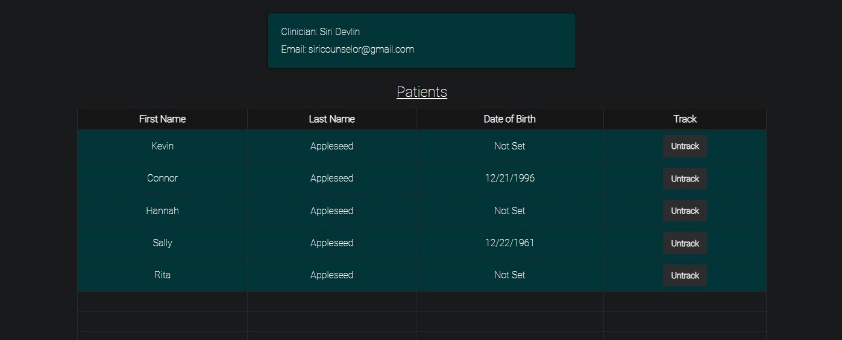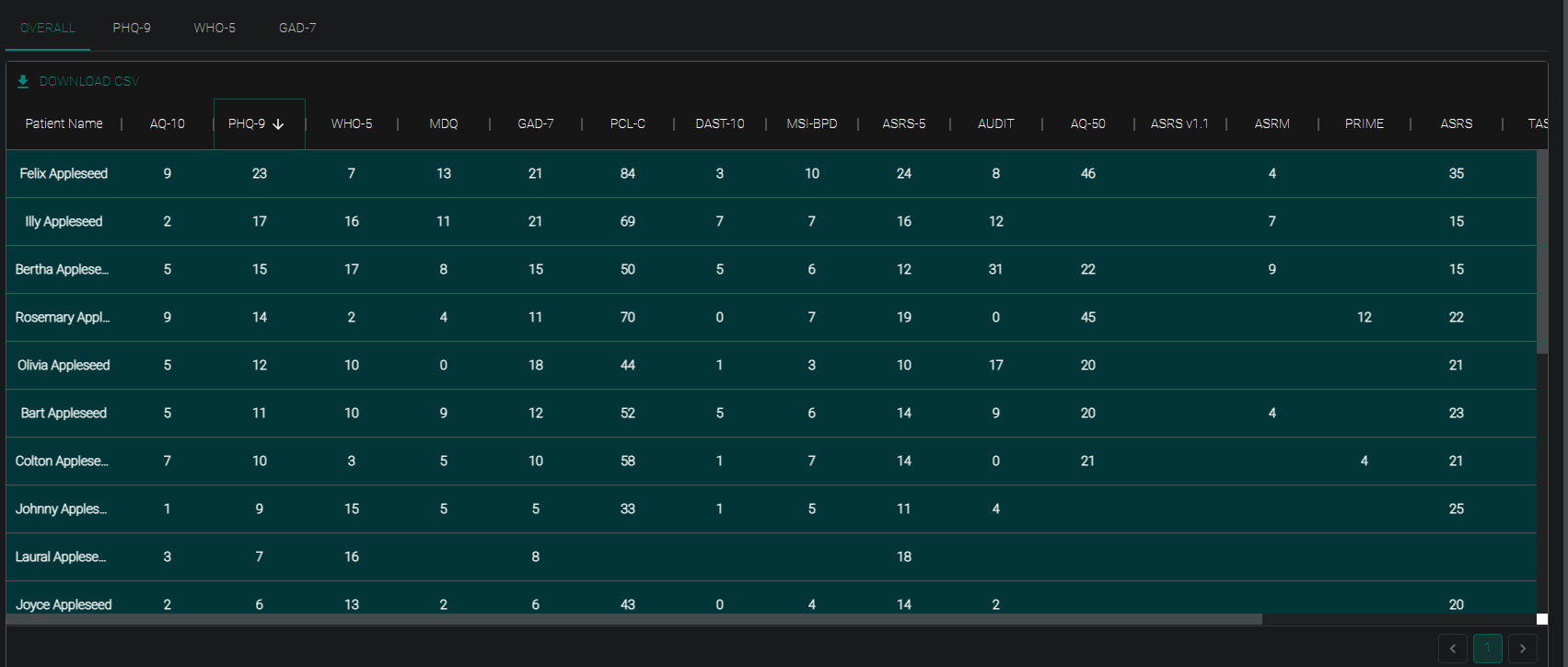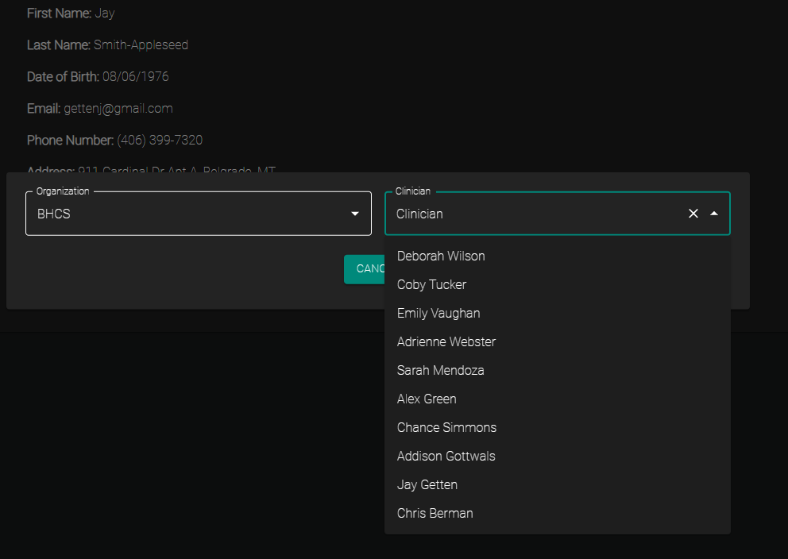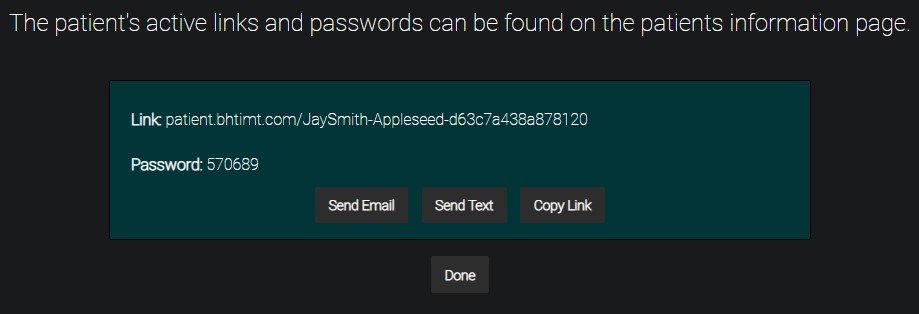Seidr Software: Transforming How Mental Health Services Are Provided
Jay Getten LCPC LMFT | Sep 14, 2024 | 12 min read
Navigating the intricate world of modern healthcare, mental health professionals are up against a new set of hurdles in providing swift and effective care. Introducing Seidr Software https://www.bhcsmt.com/seidr a revolutionary tool crafted to elevate healthcare providers and redefine mental health service delivery. Join us as we delve into how Seidr is reshaping the landscape with its all-encompassing features and precision methods.
1. Purpose and Mission
Seidr Software was created with a clear mission: to address the growing mental health crisis, particularly in regions with high suicide rates. By providing comprehensive behavioral health solutions, Seidr focuses on:
- Triaging patients effectively
- Conducting thorough assessments
- Monitoring patient progress over time
This integrated approach helps healthcare agencies manage the increasing demand for mental health services while improving patient outcomes.
2. Assessment and Screening Tools
Seidr's core strength lies in its rich collection of evaluation tools. Boasting 17 evidence-based assessments, it addresses a broad spectrum of mental health issues. Seidr distinguishes itself by integrating exclusive instruments that collect vital information on:
| Category |
| Basic needs and social determinants of health |
| Trauma history |
| Medication and treatment history |
| Developmental history |
| Family history |
| Gestational history |
Customizable Assessment Options: Healthcare providers can choose specific tools and send them to patients through email, text, or the messaging feature within patient portals, offering a versatile approach to conducting assessments.
3. Risk Scoring System
Seidr's innovative composite scoring system is a cornerstone of its triage capabilities:
Composite Scoring System
| Composite Score | 0 | 1 | 2 | 3 |
|---|---|---|---|---|
| PHQ9 | 0-4 | 5-9 | 10-15 | 15+ |
| GAD7 | 0-4 | 5-9 | 10-15 | 15+ |
| MDQ | 0-2 | 3-4 | 5-6 | 7+ |
| MSI-BPD | 0-2 | 3-4 | 5-6 | 7+ |
| AQ10 | 0-5 | 6 | 8 | 9+ |
| ASRS-5 | 0-9 | 10-16 | 17-20 | 21+ |
| Audit10 | 0-2 | 3-7 | 8-14 | 15+ |
| DAST10 | 0-2 | 3-4 | 5-6 | 7+ |
| WHO-5 | 21-25 | 16-20 | 15-11 | 10-0 |
| PCL-C | 17-29 | 30-35 | 36-44 | 45+ |
Priority Scoring Criteria
| Urgent | High | Moderate | Mild |
|---|---|---|---|
| 30-21 | 20-14 | 13-7 | 6-0 |
This comprehensive scoring system enables automated triage, recommending appropriate levels of care based on patient scores. This feature is crucial in decision-making and reducing waitlists, ensuring that high-risk patients receive timely care.

4. Patient Registry and Outcome Tracking
Seidr's patient registry feature allows for continuous monitoring of patient progress:
| Feature | Description |
|---|---|
| Ongoing Monitoring | Tracks patient outcomes using PHQ-9, GAD-7, and WHO-5 scores, flagging significant changes that may require intervention. |
| Periodic Reassessment | Supports three- and six-month evaluations to reassess risk and treatment efficacy. |
| Visual Progress Tracking | Both clinicians and patients can visualize treatment progress through intuitive graphing tools, enhancing engagement and understanding of the treatment journey. |
5. Diagnostic Assistance
Seidr goes beyond assessment to aid in the diagnostic process:
| Feature | Description |
|---|---|
| Automated Diagnostic Suggestions | Based on screening tool results, Seidr provides suggested lines of diagnostic questioning, streamlining the diagnostic process. |
| DSM Guided Questions | Generates qualitative data by prompting relevant questions based on DSM-5 criteria, ensuring a thorough and standardized approach to diagnosis. |

6. HIPAA Compliance and Security
Seidr prioritizes data security and patient confidentiality:
| Feature | Description |
|---|---|
| Robust Security Measures | Utilizes encrypted data storage, two-step authentication, and HIPAA-compliant web hosting. |
| Inter-Agency Collaboration | Allows for secure data sharing between agencies through the platform's share feature, facilitating coordinated care while maintaining privacy. |
7. Supervision and Staff Monitoring
Seidr supports effective practice management:
| Tool | Description |
|---|---|
| Supervisory Tools | Enables supervisors to monitor both patient outcomes and staff activity, ensuring care quality and operational efficiency. |
| Performance Insights | Provides valuable data for staff development and quality improvement initiatives. |

8. Reporting and Data Export
Seidr offers comprehensive reporting capabilities:
| Feature | Description |
|---|---|
| Patient Outcomes Reporting | Generates detailed reports tracking patient population outcomes using PHQ-9, GAD-7, WHO-5, and other assessment tools. |
| CSV Export | Facilitates easy data export and integration with external systems, supporting research and quality improvement efforts. |

9. Collaboration Features
Seidr enhances teamwork and coordination:
| Feature | Description |
|---|---|
| Group Functionality | Supports the creation of groups within Seidr to enhance both internal and external collaboration between teams or agencies. |
| Improved Communication | Facilitates better information sharing and coordinated care efforts. |

10. Ease of Integration with EHRs
Seidr seamlessly integrates with existing healthcare systems:
| Feature | Description |
|---|---|
| Data Portability | Assessment results, diagnostic data, and patient outcomes can be easily copied into EHRs or exported as PDF files. |
| Workflow Integration | Ensures that Seidr enhances rather than disrupts existing clinical workflows. |
Seidr Demonstration
Benefits for Mental Health Clinicians
While Seidr Software offers numerous advantages for healthcare organizations, it’s particularly transformative for mental health clinicians in their day-to-day practice. Let's explore how Seidr empowers clinicians to provide better care and enhance their professional capabilities:
1. Streamlined Assessment Process
| Feature | Description |
|---|---|
| Timesaving | 17 different screening tools allow clinicians to gather comprehensive patient data quickly. |
| Customizable Approach | Clinicians can select specific tools relevant to each patient for a tailored assessment process. |
2. Enhanced Clinical Decision-Making
| Feature | Description |
|---|---|
| Data-Driven Insights | The composite risk scoring system provides clinicians with objective data to inform their clinical judgement, supporting more accurate diagnoses and treatment plans. |
| Diagnostic Assistance | Suggested diagnostic questions based on assessment results help clinicians explore relevant areas they might otherwise overlook, especially in complex cases. |
3. Efficient Patient Prioritization
| Feature | Description |
|---|---|
| Automated Triage | The risk scoring system helps clinicians quickly identify high-risk patients who need immediate attention, ensuring efficient allocation of clinical resources. |
| Waitlist Management | By prioritizing based on clinical need, clinicians can ensure they're seeing the most urgent cases first, potentially preventing crisis situations. |
4. Improved Patient Monitoring
| Feature | Description |
|---|---|
| Continuous Tracking | The patient registry allows clinicians to easily monitor changes in patient status over time, facilitating early intervention when needed. |
| Visual Progress Tracking | Graphical representations of patient progress help clinicians quickly assess treatment effectiveness and make necessary adjustments. |
5. Streamlined Documentation
| Feature | Benefit |
|---|---|
| Integrated Reporting | Clinicians can easily generate comprehensive reports for patient files, referrals, or insurance purposes, saving valuable time on administrative tasks. |
| EHR Integration | The ability to export data directly to EHR systems reduces duplicate data entry, allowing clinicians to focus more on patient care. |
6. Enhanced Collaboration
| Feature | Benefit |
|---|---|
| Share | Enables better communication between different specialists involved in a patient's care, leading to more coordinated treatment approaches. |
| Supervision Support | Provides a structured way to review cases and track professional development for clinicians in training or under supervision. |
7. Professional Development
| Feature | Description |
|---|---|
| Evidence-Based Practice | Incorporating standardized, evidence-based tools, Seidr helps clinicians stay current with best practices in the field. |
| Performance Insights | Clinicians can track their own performance metrics, identifying areas for professional growth and development. |
8. Improved Patient Engagement
| Option | Description |
|---|---|
| Remote Assessment | The ability to send assessments electronically increases patient engagement and allows for more frequent check-ins between sessions. |
| Visual Progress Sharing | Clinicians can easily share progress graphs with patients, enhancing motivation and treatment adherence. |

9. Risk Mitigation
| Feature | Description |
|---|---|
| Comprehensive Documentation | Thorough assessment and progress tracking provide a clear record of clinical decision-making, crucial in risk management. |
| Alerts for Critical Changes | System alerts for significant changes in patient scores help clinicians stay proactive in high-risk situations. |
10. Work-Life Balance
| Feature | Benefits |
|---|---|
| Efficient Practice Management | Reduces overtime and administrative burden, potentially improving work-life balance for clinicians. |
| Remote Work Support | Supports outcome tracking for telehealth and remote work options, offering clinicians more flexibility. |
By addressing these key areas, Seidr Software not only enhances the quality of patient care but also significantly improves the day-to-day experience of mental health clinicians. It transforms time-consuming tasks into streamlined processes, provides valuable clinical insights, and supports professional growth – all while keeping the focus on delivering high-quality, patient-centered care.
Real Patient Outcomes: The Proof is in the Data
Let's look at how Seidr Software has helped improve outcomes for real patients:
Patient JH:
| Metric | Initial Score | 3 Month Score | Change |
|---|---|---|---|
| Risk Score | 19 | 8 | -11 points |
| GAD-7 (anxiety) | 20 | 7 | -13 points |
| PHQ-9 (depression) | 18 | 9 | 9 points |
| WHO-5 (well-being) | 4 | 12 | +8 points |
Patient TO:
| Measure | Initial Score | 3 Month Score | Change |
|---|---|---|---|
| Risk Score | 16 | 9 | -7 points |
| GAD-7 | 14 | 5 | -9 points |
| PHQ-9 | 18 | 9 | -9 points |
| MDQ (mood disorders) | 12 | 5 | -7 points |
Patient DS:
| Metric | Initial Score | 3 Month Score | Change |
|---|---|---|---|
| Risk Score | 21 | 10 | -11 points |
| DAST-10 (drug abuse) | 8 | 4 | -4 points |
| PHQ-9 | 15 | 5 | -10 points |
| MSI-BPD (borderline personality disorder) | 7 | 1 | -6 points |
PPatient TC:
| Metric | Initial Score | 3 Month Score | Change |
|---|---|---|---|
| Risk Score | 15 | 1 | -14 points |
| GAD-7 (anxiety) | 18 | 0 | -18 points |
| WHO-5 (well-being) | 8 | 20 | +12 points |
| MSI-BPD (borderline personality disorder) | 9 | 0 | -9 points |
Patient QM:
| Metric | Initial Score | 3 Month Score | Change |
|---|---|---|---|
| Risk Score | 14 | 5 | -9 points |
| ASRS-5 (ADHD) | 18 | 10 | -8 points |
| MDQ (mood disorders) | 13 | 0 | -13 points |
| PHQ-9 (depression) | 14 | 0 | -14 points |
Patient MR:
| Metric | Initial Score | 3 Month Score | Change |
|---|---|---|---|
| Risk Score | 12 | 2 | -10 points |
| ASRS-5 (ADHD) | 20 | 9 | -11 points |
| PHQ-9 (depression) | 15 | 3 | -12 points |
| WHO-5 (well-being) | 13 | 18 | +5 points |
These results demonstrate significant improvements across various mental health indicators, showcasing the effectiveness of treatments guided by Seidr Software's comprehensive assessment and monitoring tools.
Conclusion
Seidr Software represents a paradigm shift in mental healthcare delivery. By offering a comprehensive suite of assessment tools, innovative risk scoring, continuous monitoring, and seamless integration with existing systems, Seidr empowers mental health professionals to provide more effective, efficient, and personalized care.
The combination of evidence-based assessments, automated triage, and ongoing monitoring ensures that patients receive the right level of care at the right time. Meanwhile, the software's diagnostic assistance, reporting capabilities, and collaboration features support clinicians in making informed decisions and coordinating care effectively.
As mental health challenges increase, Seidr Software offers innovative solutions for better outcomes and accessible care. For healthcare providers aiming to improve their practice and significantly impact patients' lives, Seidr Software is more than just a tool – it's a vital partner in transforming mental health care delivery.
Seidr is available for acquisition through American Healthcare Capital. Click on the link below to learn more.
https://americanhealthcarecapital.com/listing/xysw1v/